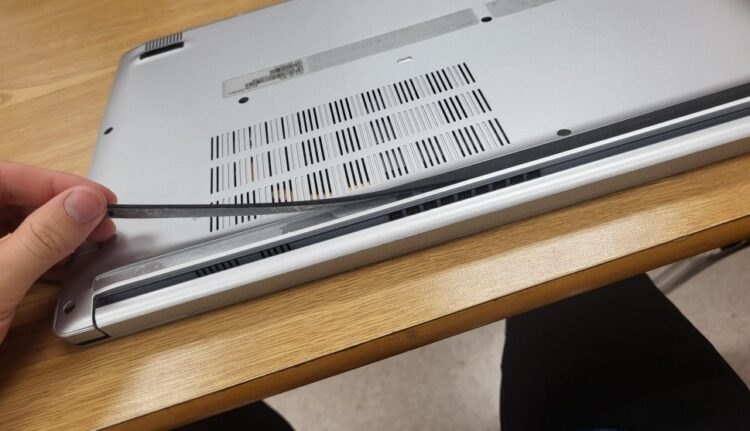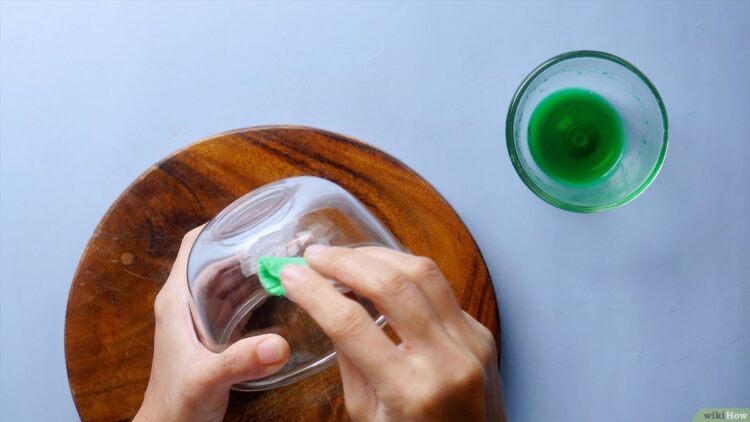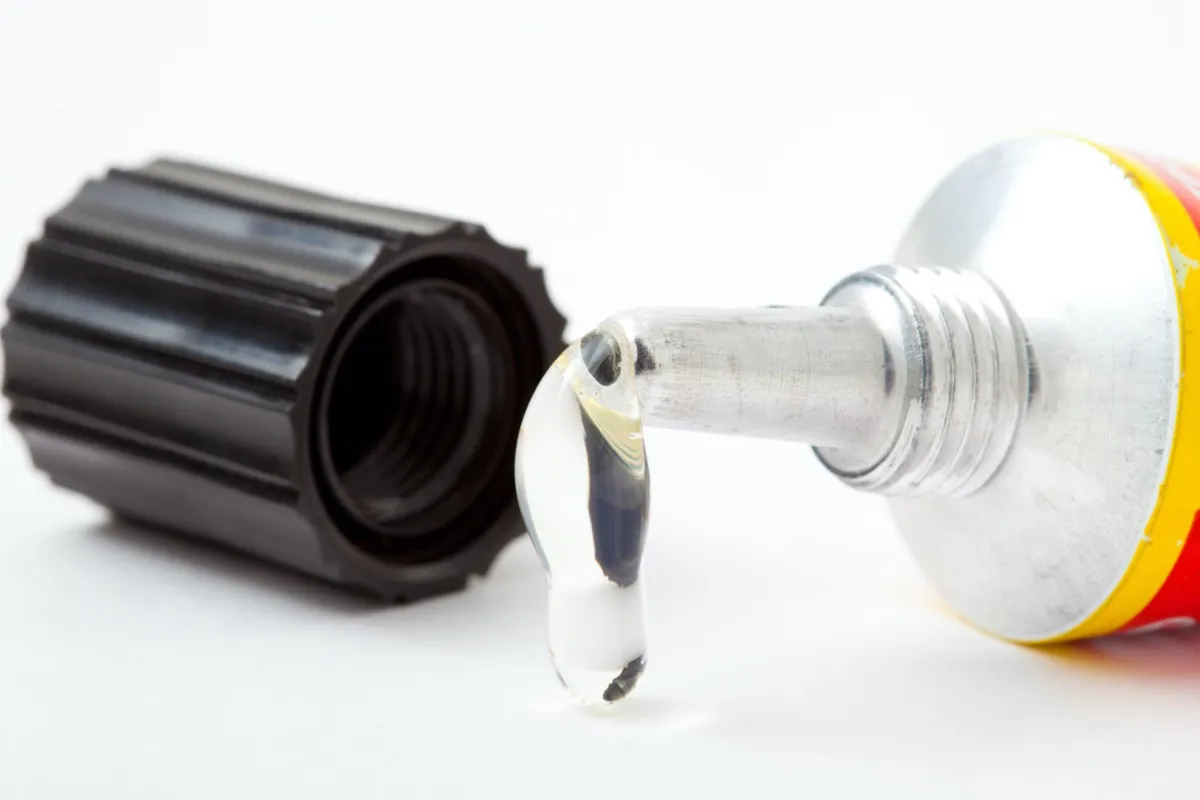Super glue, a staple in every fix-it kit, promises a quick and powerful bond for almost everything. But, as potent as it is, there are certain items on which its application might be more regrettable than resourceful.
Here’s a fun yet informative guide to the top ten things you should think twice before applying that tiny tube of super glue—though you’re probably going to try it anyway.
Table of Contents
1. Your Skin
It might sound like a no-brainer, but in the heat of a repair, it’s all too easy to forget and let super glue contact your skin. This can lead to a painful bonding experience that might require a trip to the emergency room to separate your fingers or remove them from other parts of your skin.
While super gel can be used medically for closing wounds, household varieties are not suitable for this purpose and can cause skin irritation or burns.
2. Fine Fabrics
Got a tear in your favorite silk blouse or wool suit? Super glue might seem like a quick fix but resist the temptation. This adhesive can cause fabrics to harden and discolor, ruining your garments beyond repair. It’s especially harmful to delicate fabrics, where it leaves a hard, shiny patch that is anything but discreet.
3. Heavy Furniture
While the super gel is strong, it’s not usually the right choice for heavy-duty bonding, such as fixing a broken leg on a dining table. The adhesive might hold temporarily, but under continuous weight and use, it will likely give way, potentially causing injury or further damage. For heavy items, stronger adhesives designed for woodworking or heavy-duty epoxies are more appropriate.
4. Electronic Devices

Attempting to fix a loose battery cover or a cracked screen with super glue? Think again. Super glue can seep into the small crevices of electronic devices, causing permanent damage to the circuitry or locking components together in ways that make future repairs impossible. Plus, the heat from the devices can cause the gel to break down over time.
5. Car Parts
Using super glue on car parts might be tempting, especially for quick fixes like a detached mirror or a loose trim. However, the vibrations and temperature variations a car goes through can degrade the gel quickly. Furthermore, improper application could lead to crucial components failing when you least expect it.
6. Load-Bearing Structures
Any structure that bears weight, like shelving or a handrail, should not be fixed with super glue. The risk of the adhesive failing and causing the structure to collapse can lead to serious injuries. Structural repairs should always be handled with appropriate hardware or specialized adhesives that are designed to support weight over long periods.
7. Antiques and Priceless Heirlooms
The value of antiques and heirlooms isn’t just in their appearance but in their authenticity and history. Using super glue on these items can not only damage them due to the chemicals in the glue but also significantly decrease their value. For historical artifacts, the use of reversible conservation materials is recommended so that no permanent alterations are made.
8. Polyethylene and Polypropylene Plastics
Certain plastics, such as polyethylene and polypropylene, are notoriously difficult to bond with adhesives like super glue. These materials are resistant to solvents, which include the cyanoacrylate in super glue. Specialized adhesives, designed specifically for these plastics, are needed for a lasting bond.
9. Wet Surfaces

Super glue requires a clean, dry surface to form a strong bond. Applying it on wet or damp surfaces will likely result in weak adhesion or no adhesion at all. This is particularly pertinent for plumbing repairs, where using the correct silicone-based or waterproof adhesives will provide a longer-lasting and safer solution.
10. Eyeglasses
Lastly, a common but ill-advised use for super glue is repairing broken eyeglasses. The glue can damage lens coatings or even the lenses themselves, and if applied near joints, it can make future adjustments to the frames impossible. Opticians often have special adhesives and tools that can repair glasses without compromising their structure or function.
Alternative Solutions
When faced with situations where super glue falls short, consider the following alternatives that might offer better outcomes:
- For fabrics ─ Instead of reaching for super glue, fabric glue is a safer choice as it remains flexible and won’t discolor or damage the material. For quick fixes on the go, double-sided fabric tape or even a simple sewing kit can provide more suitable solutions.
- For heavy furniture ─ Wood glue or joinery techniques are preferred for repairing it. These methods ensure a more durable bond and maintain the integrity of the piece. Epoxy resins are also an excellent choice for more demanding repairs that require a bond stronger than what ordinary wood glues can offer.
- For electronics ─ In cases where components come loose in electronic devices, it’s often better to use adhesives specifically designed for electronics. These adhesives will not conduct electricity and are heat resistant, making them ideal for sensitive electronic applications.
- For car repairs ─ Automotive adhesives and epoxies, designed to withstand the extreme conditions within vehicles, are available for car repairs. These products can handle high temperatures and vibrations far better than super glue.
- For load-bearing repairs ─ For anything that needs to support weight, consider using construction adhesives or, better yet, mechanical fasteners like screws and bolts. These provide a more secure and lasting solution than adhesives alone.
- For antiques and heirlooms ─ If restoration is necessary, it’s advisable to consult with a professional conservator. They use reversible adhesives and conservation techniques that preserve the artifact’s integrity.
- For difficult plastics ─ There are adhesives specifically formulated to bond polyethylene and polypropylene. These special adhesives can create a bond that super glue cannot achieve on these slick surfaces.
- For wet repairs ─ Silicone sealants and marine epoxies are designed to work in moist environments and can provide a waterproof seal that super glue cannot.
- For eyeglasses ─ Professional repair kits for eyeglasses use more appropriate adhesives and can ensure that adjustments remain possible. These kits are usually available at optometrists’ offices or specialized eyewear stores.

Safety Tips
When using super glue or any adhesive, remember these safety tips to avoid accidents and ensure effective application:
- Always work in a well-ventilated area to avoid inhaling fumes.
- Wear gloves to protect your skin, especially when using stronger adhesives.
- Read and follow the manufacturer’s instructions for the best results and safest use.
- Keep adhesives out of reach of children and pets.
Creative Uses for Super Glue
Despite its limitations, super glue can be incredibly useful in situations where its strengths can be fully utilized. Here are a few creative uses:
- Crafting ─ Super glue is excellent for small-scale crafts, especially in model building and jewelry making.
- Quick fixes ─ It’s great for reattaching soles of shoes or small home decor items.
- Temporary locks ─ A dab of super glue can temporarily lock screws in place, which can be helpful in settings prone to vibration.
